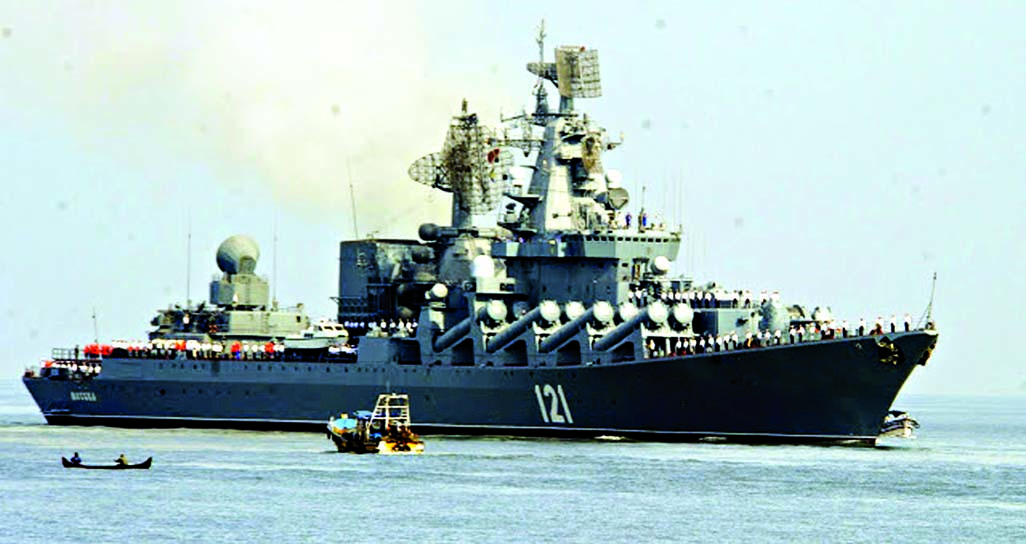News >> National
War or Peace!
 30 Aug, 2013
30 Aug, 2013
Obama yet to take decision about Syria attack: UN awaiting inspectors report: UK plan exceptional steps: Russia sends warships to Mediterranean
. BBC Online
UN Secretary General Ban Ki-moon says he will receive a report on Saturday from weapons inspectors investigating an apparent Syrian chemical attack.
Hundreds are reported to have died in the attack near Damascus last week.
US President Barack Obama has said he has not yet decided on a plan for retaliatory action against Syria.
Other nations are also considering the next move. The UK wants a UN Security Council resolution to take "all necessary measures" to help civilians.
Syrian army to have some sort of plan to protect itself from any attack, especially since the progress toward launching a military strike has been discussed so openly by Western powers.
The countries surrounding Syria are bracing themselves for a new crisis. In Beirut, the man who helped me with my bags said the West would do whatever it wanted. "But please, don't bomb anywhere near Lebanon. We fear another big war."
The UK prime minister's office said in a statement that the UK could still take "exceptional measures including targeted military intervention" even if the Security Council could not agree.
Syrian President Bashar al-Assad said his country would defend itself against any aggression.
The British parliament is voting later on Thursday on whether to back the principle of military intervention, but the leader of the opposition Labour Party has said MPs should not have to decide on what he called an "artificial timetable".
The Speaker of the Syrian parliament has written to his counterpart in London inviting a British parliamentary delegation to visit Damascus as soon as possible.
French President Francois Hollande has also yet to decide about a military intervention. But on Thursday, after meeting Ahmed Jarba, the head of the opposition Syrian National Coalition, Hollande said a political solution would only be possible if "the international community can put a temporary stop to this escalation in violence".
Meanwhile, a Chinese state-run newspaper has warned there are no excuses for air strikes on Syria.
The China Daily editorial accuses Western powers of
acting as judge, jury and executioner before the UN has completed its investigation.
Russia, President Assad's main international ally, also says it opposes any foreign military intervention in Syria.
Ban Ki-moon: "Inspectors will report to me as soon as they come out"
Russia is sending an anti-submarine ship and a missile cruiser to the eastern Mediterranean.
The ships are being sent to strengthen the navy's presence in the area because of the "well-known situation" there, the Russian news agency Interfax has said.
But another news agency, RIA Novosti, quotes a senior naval command spokesman as saying that this is just a planned rotation, unconnected with Syria.
Britain says it is sending six Typhoon fighter jets to Cyprus to protect British bases.
The UN weapons inspectors are now in their third day of investigations at the sites of an alleged chemical attack near Damascus. Ban has appealed for the team to be "given time to do its job".
President Obama: "I have no interest in any kind of open-ended conflict in Syria"
Syria denies using chemical weapons and blames opposition fighters for the attack in Damascus on 21 August, which reportedly killed hundreds of people.
It accused the West of "inventing" excuses to launch a strike.
Obama told the US Public Broadcasting Service (PBS) that the US had "not yet made a decision" on whether to take retaliatory action against Syria.
But he said that the international norm against the use of chemical weapons "needs to be kept in place", and that he had concluded the Syrian government carried out the chemical weapons attack.
As the US and UK seek a diplomatic consensus over Syria, some have identified echoes of the run-up to the Iraq War in 2003. So how much is the memory of Iraq shaping events today?
Plenty of the same ingredients are present - the weapons inspectors at work while intelligence is gathered to make a case, the denials from the autocratic regime and the midnight phone calls to enlist international support for action. And, of course, a sceptical public.
You would be forgiven for thinking it was 2003 all over again, this time with Obama, Cameron and Assad instead of Bush, Blair and Saddam.
Yet some defining images are missing. About a million people took to the streets of London on a grey February morning back then, the capital's biggest protest in memory.
Source: new nation

